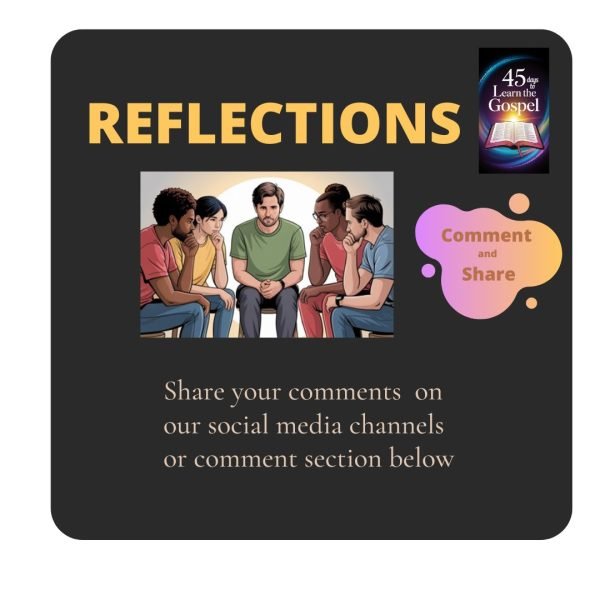Translate this page and site into over 100 languages by using the Google Translate Menu on the HOME PAGE. Please subscribe to our YouTube channel and this blog. It is free. It helps. Artwork is conceptual for teaching; not literal depictions of Jesus, heaven, or hell.
Key Scripture: Jeremiah 23:31–32 (KJV) — “Behold, I am against the prophets, saith the LORD, that use their tongues, and say, He saith… they cause my people to err by their lies, and by their lightness… therefore they shall not profit this people at all, saith the LORD.”
In a world full of voices, we need wisdom to tell the difference between opinions and God’s truth. Social media is loud, and some people use God’s name to gain money, power, or fame. The Bible warns us about false prophets who say, “He saith,” when the Lord did not send them (Jeremiah 23:31–32 KJV).
We do not despise real prophecy; we welcome what helps us grow. But prophecy is not free talk—it carries God’s authority and must be accountable to Scripture, good fruit, and fulfillment. Teachers and prophets are held to a higher standard. As followers of Jesus, we test every message, pray for wisdom, and stay rooted in the Word. Let’s share true testimonies, speak with love, and hold fast to what is good—so our faith is built on Christ, not on trends.

Alt tag: Truth vs. HYPE
How can we tell the truth from a lie?
Test the message by Scripture. God does not change His Word. If a claim fights the Bible, reject it (1 John 4:1; Acts 17:11).
Check the fruit. True servants show love, self-control, and honesty. Bad fruit—greed, abuse, pride—exposes a false tree (Matthew 7:15–20).
Watch the money. When “prophecy” is tied to fees, secret seeds, or pay-to-play blessings, be careful (1 Timothy 6:5).
Look for humility and accountability. True teachers welcome correction and church oversight (Proverbs 27:6).
See if it comes to pass. In the Bible, failed predictions mark a false voice (Deuteronomy 18:20–22).
Bible example: In Jeremiah’s day, a man named Hananiah promised quick peace. Jeremiah warned it was not from God. Time proved Jeremiah right (Jeremiah 28). God defends His truth.
Today’s concern: Social media can make false prophecy look big and loud. Politics and culture are hot topics, and we all vote. We may speak and give testimony, but we must not twist God’s name to win arguments or followers. We are called to teach the Gospel, not sell it.
What to do instead
Stay in the Word daily.
Pray for wisdom (James 1:5).
Hold fast to Jesus. He is the Way, the Truth, and the Life (John 14:6).
Join a healthy church that teaches the Bible plainly.
Share honest testimonies that point to Christ, not to self.
Reflection: Who shapes your beliefs more—Scripture or personalities? Ask the Lord, “Search me, and lead me in truth.”

Free Speech vs. Prophecy
Free speech means anyone can share an opinion. People can talk about life, faith, and even politics. But prophecy is different. A prophet says, “Thus saith the LORD.” That claim carries God’s authority, not just personal opinion. Because of that, prophets are held to a higher standard.
What makes prophecy different?
Authority: Free speech = my words. Prophecy = God’s words. (Jeremiah 23:31–32 KJV)
Accountability: Free speech answers to the community. Prophecy answers to God and His Word. “Beloved, try the spirits” (1 John 4:1).
Evidence: God’s message will agree with Scripture and bear good fruit (Matthew 7:15–20).
Outcome: If a prediction fails, the speaker was not sent by God (Deuteronomy 18:20–22).
A higher standard for teachers and prophets
The Bible says, “Be not many masters (teachers), knowing that we shall receive the greater condemnation” (James 3:1 KJV). God also warns that we will give account for every idle word (Matthew 12:36). So anyone claiming “God said” must walk in humility, truth, and accountability—open to correction from Scripture and the church.
Social media caution
Social media makes loud voices look true. Views and “likes” can feel like proof. But viral is not the same as valid. Real prophecy does not chase trends, fees, or fame. It serves people, builds the church, and points to Jesus, not to the speaker (1 Thessalonians 5:20–21: “Despise not prophesyings. Prove all things; hold fast that which is good.”).

Alt tag: #comment and share
Reflection: When I post or listen online, am I seeking God’s truth—or chasing the loudest voice? Lord, help me love truth and walk in it.
Keywords: false prophets, Jeremiah 23 KJV, discernment in social media, test the spirits, accountability in prophecy, biblical truth, prophecy vs opinion, church leadership and oversight, Christian counseling, King James Bible study
Hashtags: #FalseProphets, #Jeremiah23, #Discernment, #TestTheSpirits, #Accountability, #BibleTruth, #KJV, #Prophecy, #ChurchFamily, #ChristianCounseling
Disclosure: Below graphics are not affiliated links. There is nothing to buy. Take the challenge: 45 Days to Learn the Gospel Challenge

alt tag: #45 days to learn the gospe challenge
Romans 10:17 KJV “So then faith cometh by hearing, and hearing by the word of God.”

Alt tag: #Offer of Salvation John 315 Final
A CALL TO SALVATION:
John 3:16 “For God so loved the world, that he gave his only begotten Son, that whosoever believeth in him should not perish, but have everlasting life.”
Romans 10:9-109That if thou shalt confess with thy mouth the Lord Jesus, and shalt believe in thine heart that God hath raised him from the dead, thou shalt be saved. 10For with the heart man believeth unto righteousness, and with the mouth, confession is made unto salvation.
John 3:5-65Jesus answered, Verily, verily, I say unto thee, Except a man be born of water and of the Spirit, he cannot enter into the kingdom of God. 6That which is born of the flesh is flesh, and that which is born of the Spirit is spirit. 7
Please share and follow us:
FREE! Join to hear from us. CONFIRM email and get updates FREE!





